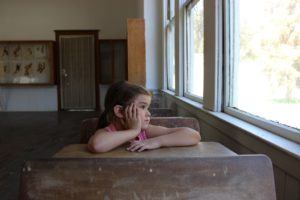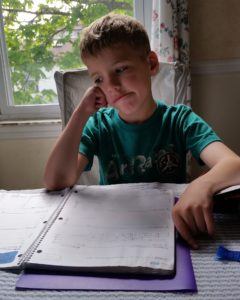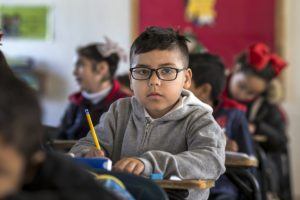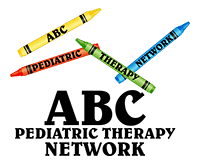Mindfulness and ADHD
Imagine being in a room with no doors, but multiple windows on every wall. You try to shut one window so the breeze isn’t too strong, and two more windows open letting in birds chirping and someone else calling your name…you try to shut another window, but a new one opens with bright sunshine flooding the room. No matter how hard you try, new windows keep opening and distracting you with new information, that you just can’t filter out. This is the everyday life for person with ADHD.

ADHD is a neurodevelopmental disorder affecting 15 million people in the US alone, with most of people being diagnosed in childhood. While medication can often be beneficial to living a successful and productive life with ADHD, new research suggests training kids in mindfulness can allow them to combat impulsivity, high energy levels, and attention to tasks, before and in addition to medications prescribed by your doctor.
Mindfulness training teaches kids meditation strategies, which include, but are not limited to: focusing on breathing, breaking tasks down into smaller steps to realize what truly must be focused on to complete that task, how to ground yourself when emotions take over, understanding what your child likes and dislike about having ADHD, and enabling the child to realize when they need help. Much like your muscles in your body, your neuro-pathways in your brain take lots of training and practice to get stronger. That’s why it is important to practice mindfulness during tasks that are most important to your child and your family. It can be for simple things like during household chores, bed time routines, how to cope with emotions, how to follow directions, making new and keeping friendships, whatever the needs are!

A great first step to work on is to just focus on taking breaths while keeping a still body. Try lying down with your child, with a pillow or stuff animal on your belly. Start for short time frames…can be as little at 10-30 seconds! Have your child place their hand on their belly, pillow, or animal friend, and state “all you have to do is breathe right now…in through your nose and out through your mouth…tell yourself you can control your thoughts and your body to stay still for this short time.” Once they are able to complete this step for a few minutes, have them try doing this while walking across a room telling your child “we are just walking and breathing…you can be in control of your thoughts and your body.” Once they master these skills in isolation, try some of the during your daily routine! Other supports like to do lists, post-it notes, calendars, and timers can beneficial to build time management and task completion. Mindfulness does not happen on its own naturally for children especially, so do not get discouraged if it takes some time for them to get the hang of it!

It’s important to remember that children with ADHD often get a lot of negative attention and often have strong feelings of worry, sadness, and embarrassment following their actions. Celebrate small victories and all the things that make your child unique, like their zealous for life, energy, and creativity! Ask your OTs for more mindfulness strategies you can use throughout the day!
If you have concerns about your child’s ability to focus, reach out to http://www.abcpediatrictherapy.com. We can help! Your child deserves it!
Information retrieved from:
Filling Your Toolbox with Techniques: Treating Children With ADHD
By: Amy M Schlessman, PT, DPT, DHS
Mindfulness for Kids with ADHD: Skills to Help Children Focus, Succeed in School, and Make Friends written by: Debra Burdick LCSW
 Skip to content
Skip to content